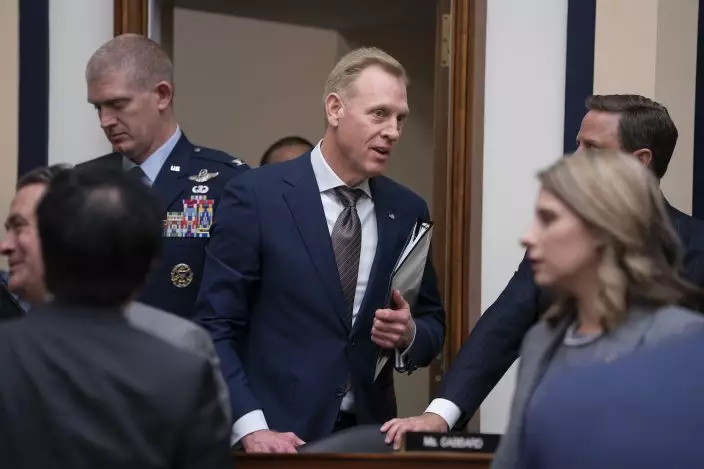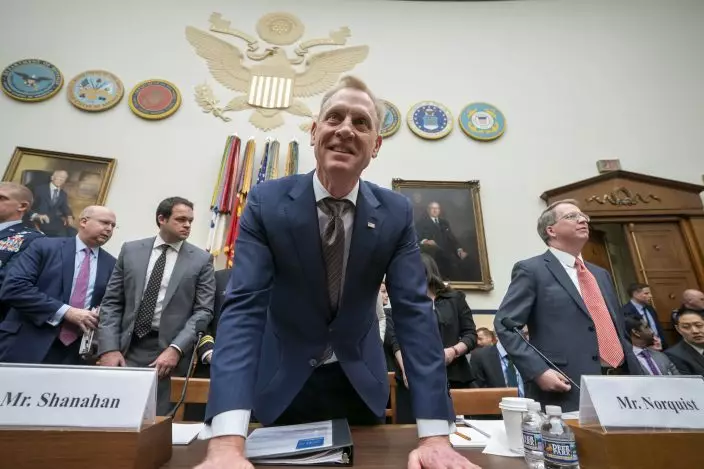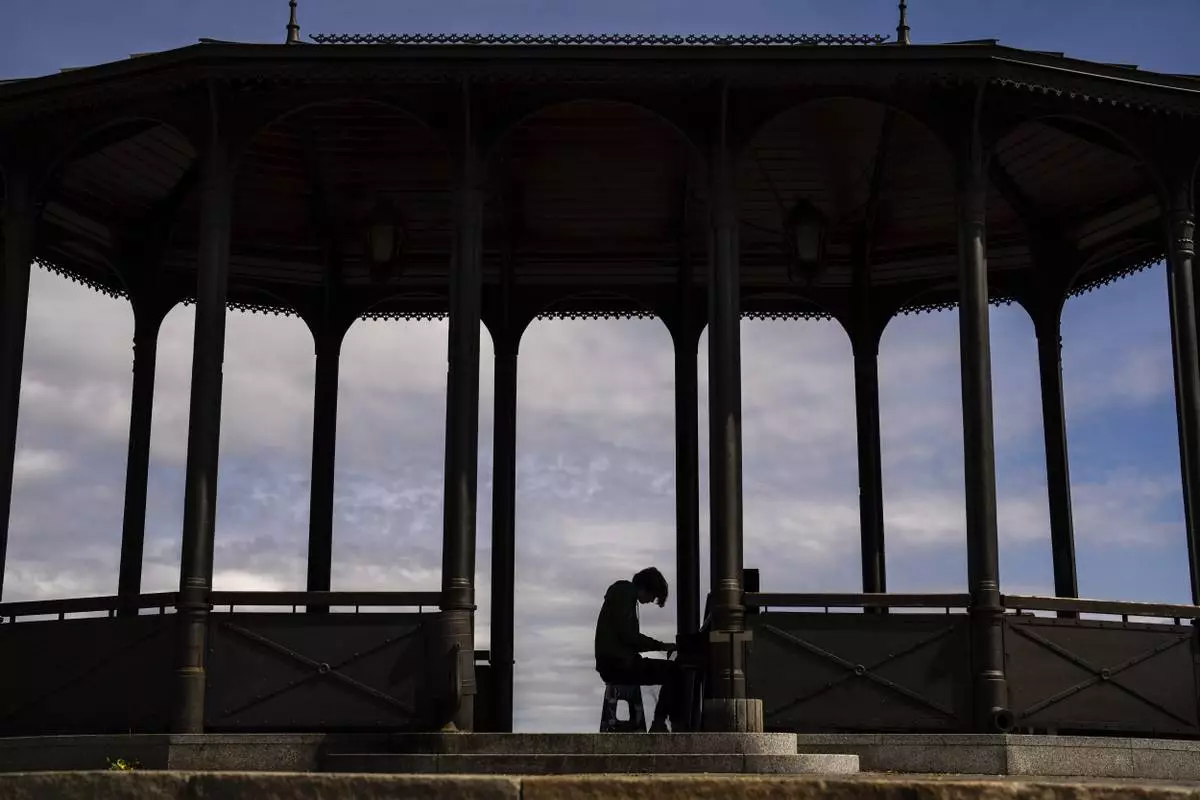House lawmakers on Tuesday denounced Defense Department plans to use military funds to pay for President Donald Trump's border wall, telling Pentagon leaders the "unbelievably irresponsible" maneuver will threaten the agency's future ability to shift money around when needed.
Both Republicans and Democrats on the House Armed Services Committee said there is little support for tapping military construction projects for the wall, about a week after Acting Defense Secretary Patrick Shanahan sent a list of vulnerable projects to Capitol Hill.
"Whatever one feels about the border wall, to look at the Pentagon as sort of a piggybank - slash - slush fund, where you can simply go in and grab money for something when you need it, really undermines the credibility of the entire DoD budget," said Rep. Adam Smith, D-Wash., chairman of the panel. "Funding a border wall out of the Department of Defense is also unbelievably irresponsible."

Acting Defense Secretary Patrick Shanahan arrives to testify at a House Armed Services Committee hearing on the fiscal year 2020 Pentagon budget, on Capitol Hill in Washington, Tuesday, March 26, 2019. Lawmakers are concerned about military construction projects that could lose funding to pay for President Donald Trump's border wall. (AP PhotoJ. Scott Applewhite)
The panel's top Republican, Rep. Mac Thornberry of Texas, also said he opposes using defense funding for other purposes. But he noted that Shanahan is facing "a lot of criticism for decisions that you had nothing to do with."
In response, Shanahan said he knew that maneuvering around Congress to fund the wall was risky and would have long-term negative effects on the department. But he said the department was executing a "legal order from the commander in chief."
The Pentagon last week sent to Capitol Hill a list of more than 400 military construction projects, totaling about $13 billion, that might be tapped for wall funding. But Shanahan has said that any money for military housing or barracks would not be touched, as well as any projects that will have contracts awarded before the end of this fiscal year, Sept. 30. When those projects are removed, about 150 remain, totaling about $4.3 billion.

Acting Defense Secretary Patrick Shanahan and David Norquist, far right, the Defense Department's budget chief, arrive to testify at a House Armed Services Committee hearing on the fiscal year 2020 Pentagon budget, on Capitol Hill in Washington, Tuesday, March 26, 2019. Lawmakers are concerned about military construction projects that could lose funding this year to pay for President Donald Trump's border wall. (AP PhotoJ. Scott Applewhite)
Shanahan has also said that projects deemed necessary for military readiness or other high priorities will be protected. But those haven't been identified yet.
Gen. Joseph Dunford, chairman of the Joint Chiefs of Staff, and David Norquist, the department's budget chief, were also at the Tuesday hearing.
Both the House and Senate voted to overturn Trump's declaration of a national emergency to use construction money to fund the wall. Trump vetoed that bill.
A number of lawmakers also objected to the Pentagon's assumption that Congress would simply refund the affected projects next year, calling it a political maneuver to get Congress to pay for the wall.
Other lawmakers, such as the entire New Jersey congressional delegation, have written to Shanahan to defend the projects in their state. In their letter, they told Shanahan that they "adamantly oppose" diverting any money for a border barrier, adding that Congress, not the executive branch, has the power to appropriate funds for specific projects.
A plan to spend $41 million at the Picatinny Arsenal's munitions disassembly complex in New Jersey is on the list of projects that could be affected.
On Monday, Army Secretary Mark Esper told The Associated Press that he and other military service leaders will go through the list and work to protect critical projects.
"I will prioritize based on readiness, lethality and things like that," he said, noting that something like a training complex could be protected if it's designed to help soldiers face emerging threats from competitors such as Russia and China.
Esper added, however, that there are clearly some projects that could be used.
"I can tell you what's not a priority. It's the parking garage, the cemetery," Esper said, referring to two projects planned at the U.S. Military Academy at West Point in New York.
The garage could be affected, but the cemetery money would not be touched because the contract award date is June, and would therefore be exempt under rules set up by Shanahan.
At least half of the $4.3 billion in vulnerable projects would affect U.S. military bases overseas or in Puerto Rico and Guam. And they include a vast cross-section of facilities, ranging from schools and maintenance facilities to shooting ranges, a cybersecurity center and a military working dog kennel.










